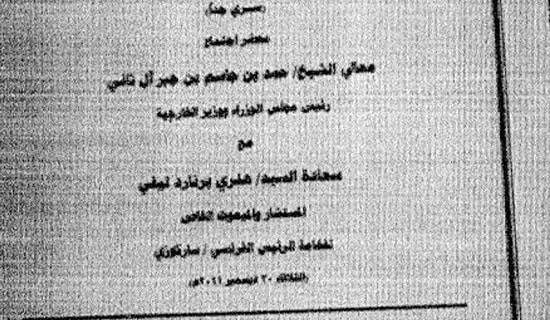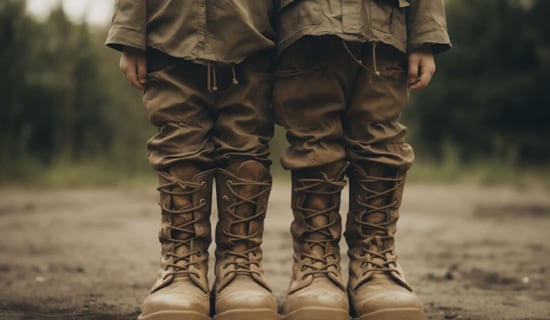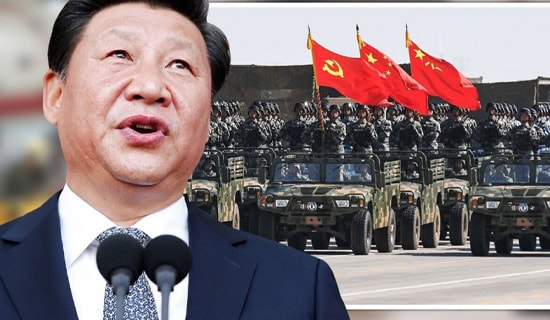On June 17, 2021, Russian President Vladimir Putin signed an executive order scheduling the elections for the Eighth State Duma, the lower house of the Russian parliament, for September 19, 2021.[1] A month into the campaign, it appears that the upcoming elections will be quite extraordinary because, due to the polling results, I do not know a single person who would argue that anything will change, but it seems the overall political landscape will start to transform after the vote.
The most paradoxical point in the campaign, which is well under way (between June 19 and July 4, all the major political parties held their conventions and announced their candidate lists,[2] which must be submitted to the Central Electoral Commission by August 4 at the latest and are then approved within ten days;[3] independent candidates are collecting the signatures of their supporters needed for registration), is that it seems none of the major political forces want to succeed. The ruling United Russia Party faces a significant decline in its approval rating, falling from 30.5 to 28.7 percent since early May, [4] but there is little doubt that it will keep its constitutional majority by gaining seats through winning individual constituencies in addition to the federal ballot.

(Source: Tass)
The September Parliamentary Elections Will Change Nothing In Russia's Political Life
During the last elections, held in 2016, the United Russia Party got 54.2 percent of the popular vote compared with 13.3 percent secured by the Communists and 13.1 percent by the Liberal Democrats, which in Russia represent the nationalists – but it won 202 individual seats in addition to its party list compared with just seven by the Communist party and five by the Liberal Democrats.[5] This scenario is set to be repeated another time – the only difference is that many members of the United Russia Party now prefer to run as independents as overall party approval figures decline.[6] Since the party's insignia features a bear, these people are commonly referred to with a pun that combines the Russian words for "self-nominated candidates" and "bear," implying that these so-called independents are in fact put forward by the "bear," i.e., the United Russia Party.
I should say that since 1993, all federal election campaigns in Russia have been organized according to different rules from those that applied to elections before that point. This time there are two novelties in place: First, it will be the first parliamentary election with internet voting (permitted in Moscow and Sevastopol [both have "federal entity" status], as well as in Nizhny Novgorod, Yaroslavl, Kursk, Murmansk, and Rostov region);[7] second, the votes will be cast for three consecutive days, from September 17-19. This makes fraud easier, but, of course, it is explained by the coronavirus pandemic that, since early June, is once again plaguing Russia.[8]
The ruling party's opponents have all become "niche" parties that are simply doing nothing to broaden their electorate. The Communists still rely on the older generation, capitalizing on post-Soviet nostalgia (there have been several rare cases in which they proposed more modern and open-minded candidates, like Vitaly Petrov, an experienced former Ministry of the Economic Development employee and who now runs in a single constituency in Moscow, who produced huge unrest in the party).[9] The Liberal Democrats support Russian nationalism inside the country, proposing more solid leadership from the center and less autonomy for the national republics. The Just Russia party, which previously had been a kind of Social-Democratic party, is now headed by a trio of leaders, one of whom is Zakhar Prilepin,[10] a talented writer who openly dismisses the sovereignty of now independent post-Soviet states[11] and has spent time in Donbass fighting the Ukrainian army on the side of local separatists.[12]
The Communists refrain from a strong critique of President Putin; the Liberal Democrats did nothing to support their comrade Sergei Furgal, currently jailed former governor of Khabarovsk Kray; the Just Russia party is losing its rather moderate electorate due to its new imperialistic rhetoric. The only liberal and democratic party, called Yabloko, which is named after a combination of the last names of its founders but currently fully owned by one of them, Grigory Yavlinsky, is active not so much in recruiting new supporters as in declaring that it wants to have nothing to do with the allies of the main anti-Putin figure, Alexei Navalny[13] and even asking his fans to refrain from voting Yabloko.[14] I would say it is a unique case of a political party actively calling on voters not to vote for it.
The lesser parties, among which I would mention only the Kremlin-engineered Novye Lyudi ("New People") party, which positions itself as a business-friendly liberal force, and the Russian Party for Freedom and Justice, which positions itself as a kind of a "party of the regions" calling for the development of the Russian federal system and for extending the national minorities' rights, will not fight to squeeze into the Duma (a party needs five percent of the popular vote to get a fraction there, though there have been attempts to lower the threshold to three percent)[15] but rather for getting the three percent of the vote that secures the budget financing (now set at 152 rubles annually per vote[16] – so if a party gets around 1.2 million votes it will get close to 180 million rubles [$2.5 million] annually for five years). I would argue that Yabloko's goal is the same and it will get no seats in the Duma, as it has every time since 2007 – but if the small parties succeed in getting a considerable number of votes, these will be distributed proportionally among the others, benefiting mostly the United Russia Party.
So, if I am right, the Kremlin's plan is to get at least the same 343 seats in 450-strong chamber for the United Russia and to keep all the other "systemic opposition" parties in the Duma. I also expect that several other small parties will get at least one or two representatives but none will break through the five-percent threshold. No liberal politician, including those on the Yabloko list ticket, will squeeze through (and many will not even be able to get onto the ballot list – like, e.g., Andrey Pivovarov, a recently arrested activist from St. Petersburg who once chaired Mikhail Khodorkovsky's Open Russia movement[17] and was recently nominated to run[18] while in custody in the Krasnodar pre-trial detention center).[19] Therefore, one may say that the September parliamentary elections will change nothing in Russia's political life, as the United Russia Party keeps its constitutional majority and the same four parties are present in the parliament with the same liberal ones remaining outside it being allowed to moderately criticize the government.
United Russia Party Leadership May Well Change In The Coming Years
However, all this does not present the entire picture. The most important point here is that the 2021 elections actually finalize a 15-year story of complete "stability" in the State Duma in particular and in the Russian multi-party "managed democracy" system in general. Since 2007, the same four (or even five, if Yabloko is added) parties competed in national elections headed by the same leaders and delivered quite similar results. But 2021 might be the last time they come to the stage for the same performance. The next elections are due in 2026, and by that time the two most experienced leaders – Gennady Zyuganov of the Communist Party and Vladimir Zhirinovsky of the Liberal Democrats – will turn 80, while Sergei Mironov of Just Russia and Grigory Yavlinsky of Yabloko most probably will retire from politics (the first one is expected to get a president-appointed senator-for-life position, [20] and the latter is simply becoming tired of politics, deciding not to be on the ballot list at all this season). [21] To put it another way, I believe that none of the current party leaders will stay in the next elections – and even the United Russia Party leadership may well change in the coming years (more than half the ruling party's candidates in the current draw have never participated in federal elections before,[22] so one may expect serious changes to its Duma faction, with most of the new deputies being considerably younger than the current appointees). And this transformation in the Russian case means much more than simply a generational change.
All the four major parties except the United Russia Party are now led (and, I would emphasize, owned) by the same people that founded them many years ago (the Liberal Democratic Party [LDP] of Russia was the first, dating its history from 1990 as the LDP of the Soviet Union). So here we have two quite important points to mention.
On the one hand, Russian politics is highly personalized. I would even say that there are no parties in the country, but rather fan groups of different public figures. Zhirinovsky has been present in Russian politics for over 30 years, and everybody who votes for his party actually votes for him, and not for the other influential party members (famous mostly for corruption or, like Leonid Slutsky, who is second on the list,[23] for harassing female reporters in the Duma corridors).[24] The same is true even for the Communists, among whom Zyuganov is an unchallenged figure at the top of the party. Yabloko is run in an even more sophisticated manner, with Yavlinsky having not been formally in charge for many years but installing a new chairperson once every four years with no candidates having any chance to compete with the figure he picked up. So, the major problem for the current parties will be to remain manageable under new leadership while keeping their current supporters in the pocket.
On the other hand, politics in Russia is good business, and the parties serve as money machines, selling positions in electoral ballots, welcoming sponsors that get lobbying from their deputies, and managing trade-offs between local politicians, businessmen, and federal authorities. Of the 100 public servants with the highest annual incomes for 2020 (and the first ten on the list received between 2.2 and 8.6 billion rubles [$30-116 million] per year),[25] 78 are federal or regional deputies who got their positions while, in fact, remaining businessmen. Therefore, the change expected between now and 2026 is actually a change of controlling shareholders in all major political structures in Russia – and in this aspect it might be said that Russian politics after 2021 will remain the same and become different at the same time. The Kremlin controls the parties' leadership and all their important moves are preliminarily approved by the presidential administration, but I would say the money flows are mostly the parties' own business – and this may change in coming years.
No one knows how all these changes may happen and how smooth they may be – there is no precedent for this in Russia. But as of today, two major scenarios are debated as the most probable. The first consists of incorporating the Liberal Democratic Party into the United Russia Party (which might be quite easy to do since in most cases LDP deputies support United Russia in the Duma, and the party looks as "commercialized" as United Russia itself, so there should not be huge problems in merging them both into one structure) and creating an enlarged leftist party on the basis of the Communist Party and the Just Russia. I do not see any difficulties for this venture, either, since both parties are now nationalistic, support the "Russian world" concept, in one or another way pursue the ideas of social justice calling for larger equality and formally criticizing the "oligarchs," etc.
SUPPORT OUR WORK

The two-party scheme has been debated several times in the past,[26] and there is a good chance that it emerges in the coming years. The second possible scenario consists of a careful transfer of all the parties from one beneficiary (or from one family, as in Zhirinovsky's case) to some other gentlemen under the careful supervision of the presidential administration – but in this case a risk of losing manageability definitely persists, since no one knows how loyal the party members (and, what is much more important, the voters) are to the parties and their leaders. This option, nevertheless, might be preferred by the Kremlin since it resembles the possible developments in the entire "power vertical" where no one questions "the right" of the leader to pick his successor and to organize a "power transfer" according to his own wishes.
Closer To The Presidential Elections Of 2024, The Existing System Will Change To Fit Better The Last Years Of Putin In Power
So to finalize I would say that no one knows now for sure what will happen to the Russian party system in the coming years, but it is highly likely that after the September elections – which, I would reiterate, will change almost nothing on the Russian political landscape – the existing system will continue unchanged for two years or so but closer to the presidential elections of 2024 it will transform into something formally, but not substantially, different for fitting better to the changing politics of the last years of Putin in power. All this is already decided by the ruling Russian elites, and I do not expect any deviations from this path (quite recently several sources reported that the Kremlin wants to postpone the elections either to December, 2020 or to the spring of 2021 "due to coronavirus outbreak"[27] – but the Central Electoral Commission already dismissed the rumors,[28] and I think it is totally impossible since such a proof of weakness will have a very high cost to the ruling party, while the attention of the public to the upcoming elections is so low that may United Russia Party may get any result it wants without causing popular protests or disarray).
*Dr. Vladislav L. Inozemtsev, Ph.D. in Economics, is a Special Advisor to MEMRI's Russian Media Studies Project.
[1] Interfax.ru/russia/772703, June 17, 2021.
[2] Interfax.ru/russia/772703, July 5, 2021.
[3] Rg.ru/2021/06/18/cik-utverdil-kalendarnyj-plan-vyborov-v-gosdumu.html, June 18, 2021.
[4] Wciom.ru/ratings/reiting-politicheskikh-partii
[5] Ru.wikipedia.org/wiki/Выборы_в_Государственную_думу_(2016)
[6] Fontanka.ru/2019/07/12/134/, July 12, 2019.
[7] Tass.ru/politika/11466857, May 25, 2021.
[8] Meduza.io/news/2021/06/18/tsik-ob-yavil-o-trehdnevnom-golosovanii-na-sentyabrskih-vyborah, June 18, 2021.
[9] Lenta.ru/articles/2021/03/26/comm/, March 26, 2021.
[10] Dw.com/ru/zachem-obedinilis-mironov-prilepin-i-semigin/a-56655048, February 22, 2021.
[11] Gazeta.ru/politics/news/2021/07/03/n_16194158.shtml, July 3, 2021.
[12] Kp.ua/politics/644725-zakhar-prylepyn-pryznalsia-chto-eho-batalon-tvoryl-na-donbasse-bespredel, August 16, 2019.
[13] Echo.msk.ru/news/2868540-echo.html, July 9, 2021.
[14] Mk.ru/politics/2021/07/07/yavlinskiy-prizval-storonnikov-navalnogo-ne-golosovat-za-yabloko.html, July 7, 2021.
[15] Russian.rt.com/russia/news/802673-prohodnoi-barer-vybory-gosduma, July 9, 2021.
[16] Kommersant.ru/doc/4282595, March 7, 2021.
[17] Thebell.io/zaderzhan-byvshij-direktor-otkrytoj-rossii-andrej-pivovarov/, May 31, 2021.
[18] Echo.msk.ru/news/2865288-echo.html, July 3, 2021.
[19] Rferl.org/a/russia-pivovarov-charged-foreign-agent/31296146.html, June 8, 2021.
[20] Ng.ru/politics/2021-04-25/1_8137_politics1.html, April 25, 2021.
[21] Svoboda.org/a/yavlinskiy-ne-budet-ballotirovatjsya-v-gosdumu-na-vyborah-v-sentyabre/31339392.html, July 3, 2021.
[22] Kremlin.ru/events/president/news/65730, July 2, 2021.
[23] Interfax.ru/russia/773908, June 25, 2021.
[24] Meduza.io/feature/2018/02/28/zhurnalistki-obvinili-leonila-slutskogo-v-domogatelstvah-oni-mogut-podat-v-sud-a-chto-s-deputatskoy-neprikosnovennostyu, February 28, 2018.
[25] Forbes.ru/rating/433735-100-gossluzhashchih-s-samymi-vysokimi-dohodami-2021-reyting-forbes
[26] Youtube.com/watch?v=gtc6DJzMB1k, September 15, 2020.
[27] Ura.news/articles/1036282621, July 10, 2021.
[28] Ria.ru/20210710/tsik-1740713680.html, July 10, 2021.




